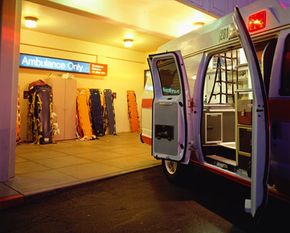Trying to find the right health insurance policy for you and your family is tricky business. The whole point of having insurance is to protect yourself in case of an emergency, but when money is tight, you don't want to pay for coverage you don't need. If this situation sounds familiar, a catastrophic insurance policy might be right for you. In this article, we'll examine the pros and cons of catastrophic insurance plans.
Catastrophic insurance is a type of fee-for-service health insurance policy that is designed to give protection against, well, a catastrophe. It is sometimes referred to as a High Deductible Health Plan because low monthly premiums are traded for a significantly higher deductible. This means that with this plan, routine doctor's visits and prescription costs are more expensive, but monthly premiums are lower. So you take on more out-of-pocket expenses in exchange for lower premiums. If you're healthy, you save money. But if something catastrophic happens, you're covered.
Advertisement
Basically, you pay for what you need rather than what you might need. This means that once you meet the deductible, you pay the same percentage of the total visit fee, whether you are seeing a specialist for your diabetes or a general practitioner for a simple physical. Therefore, you are free to follow the best course of action to suit your health care needs.
There are two basic types of catastrophic plan: comprehensive and supplemental. A comprehensive plan offers coverage comparable to more traditional health care plans. There is still a high deductible and monthly fees are still relatively low -- but they're higher than those in supplemental catastrophic plans. The advantage of a comprehensive plan is that you can be covered for emergency services, like a trip to the ER or a ride in an ambulance, but at a lower monthly premium than a traditional plan. A supplemental plan is just that -- it acts as a supplement to other insurance plans you might have. Medical appliances, nursing care and psychiatric care might be included in a supplemental plan.
In both types of catastrophic insurance plans, once your deductible is met the insurance company covers the major medical expenses that it deems necessary, like hospital stays, surgeries, lab tests and intensive care. Like in other insurance plans, elective procedures are not covered.
So, you might have figured out by now that this type of insurance plan isn't for everyone. Let's find out who might benefit from them.
Advertisement

